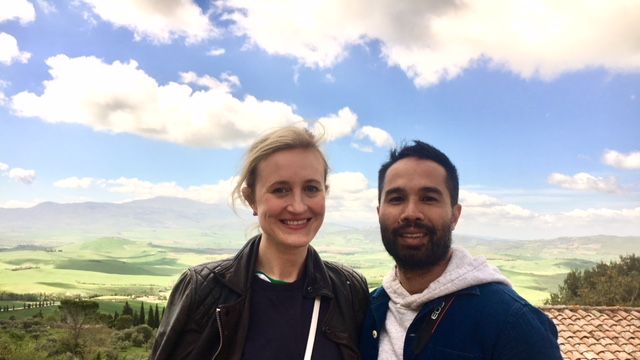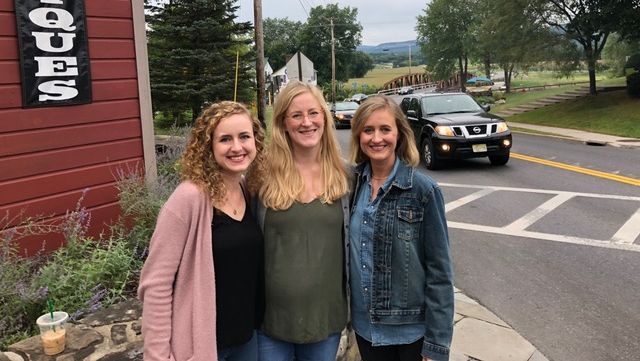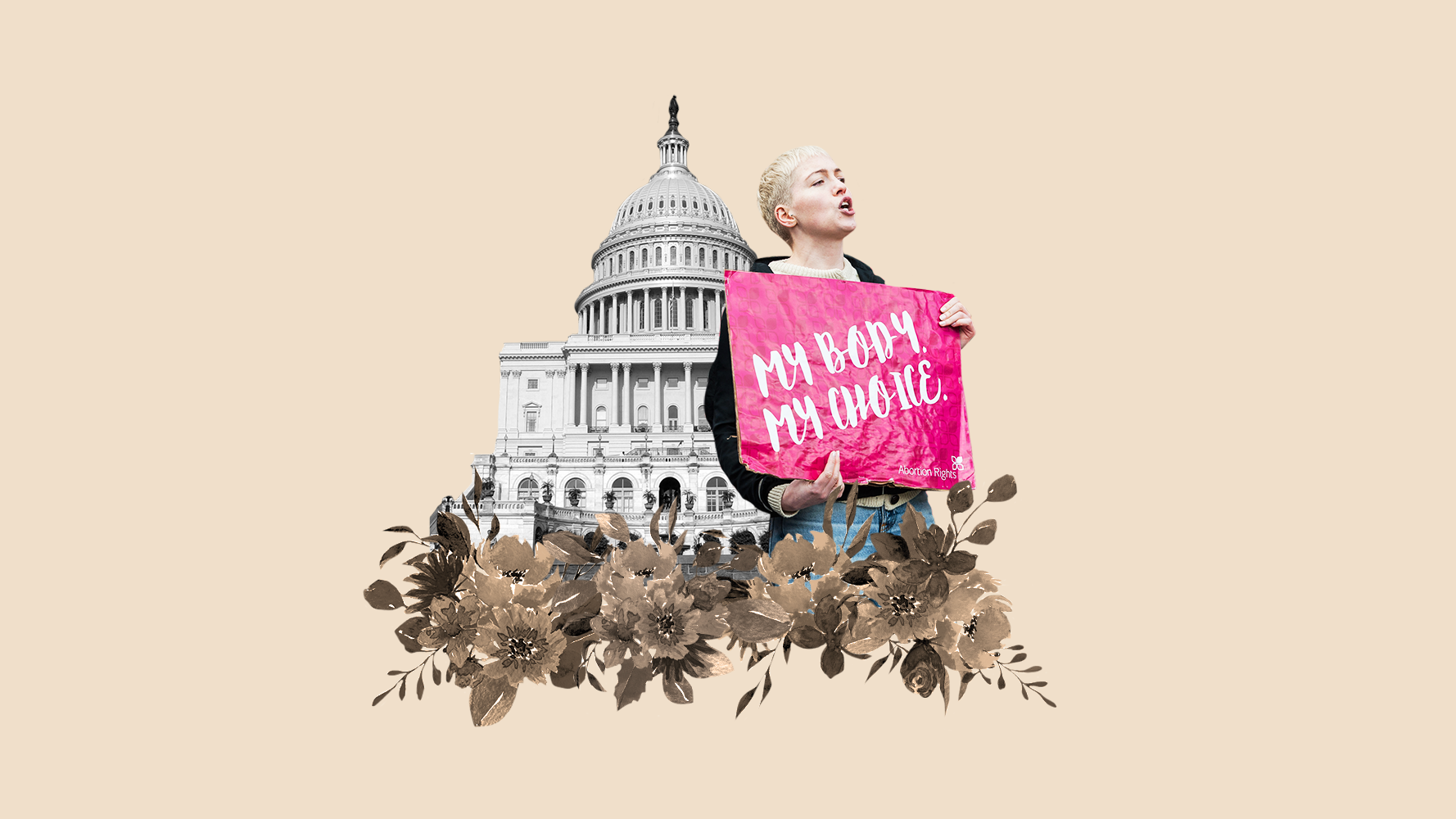I Was 6 Weeks Pregnant When Ohio Passed Its 6-Week Abortion Ban
And my body was giving me no clues. How will women who want or need abortions be able to decide in time?


Select the newsletters you’d like to receive. Then, add your email to sign up.
You are now subscribed
Your newsletter sign-up was successful
Want to add more newsletters?

Delivered daily
Marie Claire Daily
Get exclusive access to fashion and beauty trends, hot-off-the-press celebrity news, and more.

Sent weekly on Saturday
Marie Claire Self Checkout
Exclusive access to expert shopping and styling advice from Nikki Ogunnaike, Marie Claire's editor-in-chief.

Once a week
Maire Claire Face Forward
Insider tips and recommendations for skin, hair, makeup, nails and more from Hannah Baxter, Marie Claire's beauty director.

Once a week
Livingetc
Your shortcut to the now and the next in contemporary home decoration, from designing a fashion-forward kitchen to decoding color schemes, and the latest interiors trends.

Delivered Daily
Homes & Gardens
The ultimate interior design resource from the world's leading experts - discover inspiring decorating ideas, color scheming know-how, garden inspiration and shopping expertise.
“I don’t know—I just feel different.” That’s how my sister described it. She hadn’t yet peed on a stick, she hadn’t yet missed her period, but she knew. Deep in her bones, on some maternal molecular level, she knew she was pregnant.
So when my husband and I started actively trying to have a baby this past fall, that’s what I was searching for: some female intuition suggesting that I was pregnant. Because an unexpected surgery had set back our timetable, I’d spent several months doing everything I could to prep so I was totally ready to go when my doctor cleared me. I popped prenatal vitamins daily. I bought a digital ovulation tracker. I read Taking Charge of Your Fertility and started recording my basal temperature each morning and cervical mucus throughout my cycle.
I saw a headline: “Ohio’s Six-Week Abortion Ban Becomes Law.” I was six weeks pregnant. Almost seven. And I still had no evidence of such besides that missed period.
After a couple months, I wasn’t just prepared to begin trying to conceive; I was more in tune with my body than ever. I could predict my waking temperature within a couple tenths of a degree. I could predict my period to the hour.
And yet, once I did in fact get pregnant four months in, there was very little about my body to suggest that I was. Yes, I knew the day that my period was late. I knew that the elevated number on the thermometer when I woke suggested that I was pregnant. But I didn’t feel different. I felt exactly the same.
I didn’t feel like my breasts were two bowling balls, as I remember my eighth-grade sex-ed teacher saying is often a woman’s first clue. I didn’t run out of a meeting and vomit into my wastebasket like Hollywood would have you believe is how women realize they’ve conceived. I didn’t feel sick to my stomach at all, or exhausted, or overly emotional.
While I had the pregnancy test as proof, I couldn’t fully wrap my head around the fact that I was with child. I waited for the symptoms to kick in. A week went by—nothing. Another—nothing. And then, I saw a headline: “Ohio’s Six-Week Abortion Ban Becomes Law.” I was six weeks pregnant. Almost seven. And I still had no evidence of such besides that missed period. How scary, I thought, that another woman might be feeling as not-pregnant as I did and not realize it in time to make a choice.

By now, of course, that shock I felt has become quaint. Last week Georgia’s governor signed into law its own six-week ban. Alabama’s Kay Ivey did the same on Wednesday—just as the Missouri senate was approving an eight-week ban. Every article about one of these “heartbeat” bills includes some variation on this sentence: “The bill outlaws abortions as early as six weeks into a pregnancy, before many women know they are pregnant.”
Get exclusive access to fashion and beauty trends, hot-off-the-press celebrity news, and more.
Obviously. I was hyper-aware of my body and have a period as regular as a Swiss clock and I didn’t know I was pregnant until I was four-and-a-half-weeks along. What about women who aren’t actively trying? What about women who don’t track their temperature each morning? What about women whose periods are all over the place? What about women who mistake spotting (a tricky sign of being pregnant) for their period?
What about women whose periods are all over the place? What about women who mistake spotting (a tricky sign of being pregnant) for their period?
Putting aside all the medical and ethical issues of these bills (that many don’t have exceptions for rape or incest; that many don’t include provisions for health complications like an ectopic pregnancy; that none make any suggestion of helping women and their subsequent babies with healthcare; that Georgia wants the ability to send women who’ve had abortions and doctors who’ve provided them to prison for life), the thing that really gets me about these bills is that lawmakers act as if they’re leaving women with any options at all. That it’s simply up to women to be so finely in tune with our bodies to know intuitively when an embryo latches on to our uterine wall and to get in for that abortion (if we choose) within a week, maybe two. My sister knew she was pregnant before a test confirmed it; the vast majority of women do not.
With the near-total abortion ban in Alabama, state senator Clyde Chambliss emphasized that the procedures are banned only when a woman “is known to be pregnant.” Yes, this man had the audacity to suggest that this bill leaves a tiny sliver of opportunity for a woman to have an abortion—she just has to be conscientious and get to the clinic right-quick. Even if she's a teenager who was raped by a family member. “There's a window of time when a woman knows she's pregnant.... She has to do something to know whether she's pregnant or not,” he said. “It takes time for all the chromosomes to come together."

It’s unclear whether all the men behind these bills truly have zero idea about how reproduction works (if they understand, for instance, that a pregnancy is counted from a woman’s last period, so she’ll be at least four or five weeks along by the time she can confirm it) or if they know and just don’t give a damn. I’m not sure which is worse.
I realize these bills are mostly symbolic, just a precursor to set up for a bigger national fight about Roe v. Wade. But lawmakers need to stop acting like they’re leaving women any choice, like if we don’t do something in the microscopic window they’re leaving us, it’s our fault. Like it’ll all be okay if we’re just hyper-vigilant, fertility-tracking uterus whisperers who can sense an oncoming pregnancy. Yes, some women like that do, in fact, exist—but they’re generally not the ones who want or need abortions.
RELATED STORIES


Laurel Leicht is a writer and editor in Brooklyn. She's covered health, fitness, and travel for outlets including Well+Good, Glamour, and O, The Oprah Magazine.
